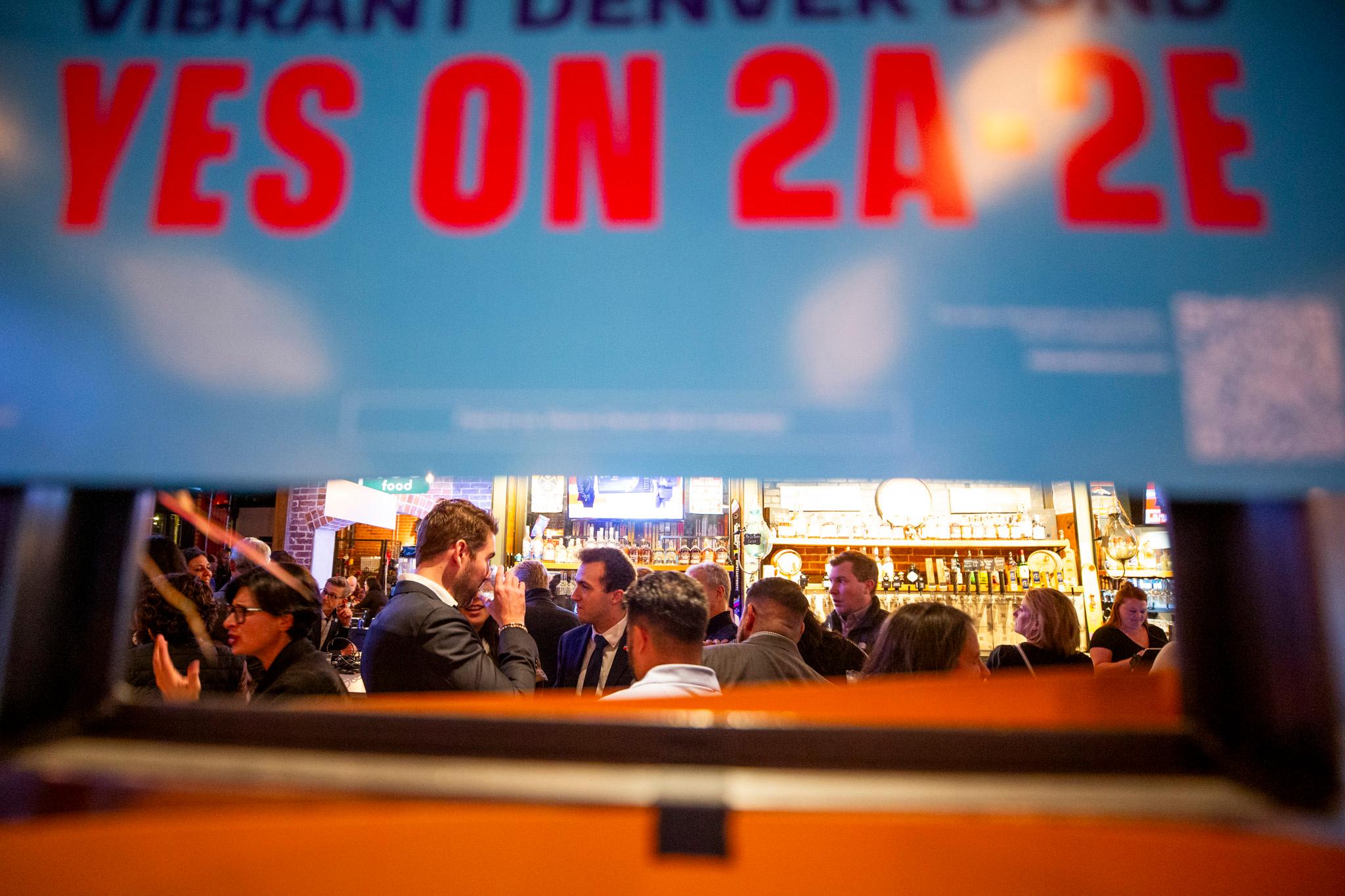Denver voters approved Vibrant Denver by a large margin on Tuesday, allowing the city to take out $950 million of long-term debt and spend it on projects around the city.
Here’s what’s in the plan, which the city has promised to finish within six years. A full list is at the end of the article.
The biggest projects:
- $89 million for the reworking and partial teardown of the 8th Avenue viaduct and $50 million to repair the 6th Avenue viaduct
- $75 million for a new training center for the police, sheriff and fire departments
- $75 million for the Marion Underpass and related connections in Globeville-Elyria Swansea
- $70 million to build Park Hill Park
- $55 million for the West 38th Avenue multimodal transportation project
Transportation:
The package includes $441 million for transportation and mobility projects.
Two of the most attention-grabbing and expensive projects would spend about $140 million on repairs and rebuilds of the road bridges on 6th and 8th avenues.
The changes would include removing part of the 8th Avenue viaduct and turning it into a surface street to "reconnect the grid." The 6th Avenue project would include "critical, structural repairs" as well as new connectivity, access points and pre-design work for a future replacement of that bridge.
The projects will benefit the Broncos’ plan to build a stadium in the area, but city officials argued the viaducts needed fixing anyway.
The Santa Fe Drive corridor could get $30 million for wider sidewalks and other improvements. Globeville and Elyria Swansea could get $75 million to build an underpass beneath rail lines to the RTD N Line. A miles-long stretch of 38th Avenue between Sheridan Boulevard and Fox Street could get $55 million for multimodal improvements.
Parks and recreation:
The package includes $175 million for parks and recreation projects.
The largest share goes to Park Hill Park: $70 million to fund the first phase of construction on the old Park Hill Golf Course, which the city just bought.
Another $20 million would go toward acquiring land and opening a new recreation center and skate park in southeast Denver. The city hasn’t decided on a location for either.
Sun Valley’s long-awaited Riverfront Park is set for $5 million for its second phase of construction. And some recently acquired land in Windsor could get a $2.8 million boost toward becoming a full park.
Other parks bond projects include improvements to numerous pools and playgrounds around the city, renovations for the city-managed Echo Lake Lodge in Idaho Springs and a bike pump track in southwest Denver.
Health and human services:
The package includes about $30 million for two health and human services projects.
About $10 million will go to the new Denver Children’s Advocacy Center, which would include “forensic interview rooms, therapy spaces, medical exam rooms, bilingual support, sensory-friendly design.”
Another $20 million will go toward a major renovation of Denver Health’s Sam Sandos Westside Family Health Center in Sun Valley. The renovated health clinic would offer services like dental care, OB/GYN services, physical therapy, radiology and more.
Both would operate in Sun Valley, one of Denver’s poorest neighborhoods.
City facilities:
Vibrant Denver includes $244 million for libraries, cultural institutions and other city facilities.
However, the category’s biggest project is a $75 million training center for police, fire and sheriff’s trainees.
About $35 million could go to Red Rocks, the Morrison-based concert venue owned and operated by the city of Denver. The money would be used to update its backstage, which isn’t compliant with accessibility standards and, according to the city, has been unable to support Red Rocks’ growth in popularity.
Other major projects include building a new $20 million American Indian Cultural Embassy. Another $20 million will go to improvements to Boettcher Hall, and $10 million will fund a Denver Animal Shelter renovation.
Many of the city’s cultural institutions, like the Denver Art Museum and Denver Botanic Gardens, will get several million dollars each to support maintenance and improvement projects. They were among the donors for the bond, pitching in tens of thousands of dollars to support the campaign.
Housing and shelter:
Voters approved about $60 million for housing and shelter facilities. While previous bonds typically only funded temporary shelter space, this one includes money for privately developed or city-owned affordable housing projects, as well as improvements to existing shelters.
The largest single spending item is $45 million for “Affordable Housing Project Development,” which could allow the city to buy land for development or acquire existing buildings to turn into affordable housing.
The city could choose to run an affordable housing complex by itself or lease the land to a developer. The city could also buy buildings and lease them to developers for use as affordable housing.
A total of $10 million is also set aside for the construction of a new library that would also include affordable housing. Another $11.5 million is reserved for Americans with Disabilities Act improvements and deferred maintenance at city-managed affordable housing projects and shelters.













